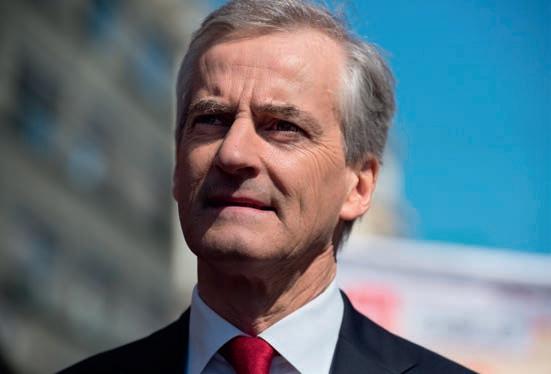
8 minute read
Vince McDonagh



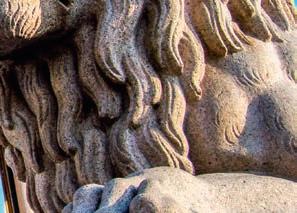


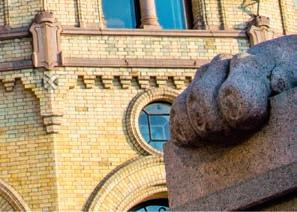


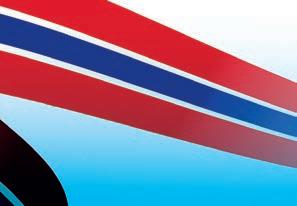

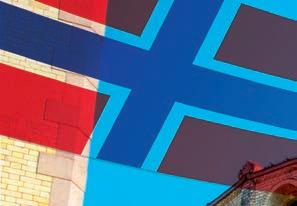

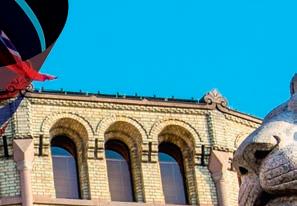
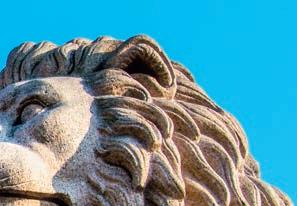
After Brexit, is Nexit next?
A party that wants to pull Norway out of the EU Single Market is doing well in the polls
BY VINCE MCDONAGH

When Norwegians go to the polls to elect a new government next month, a group of business leaders will be wai� ng nervously for the result.
They are the country’s fi sh farmers who fear a change of government could have a profound impact on their fi nances and on the way they operate in future.
Aquaculture has been a phenomenal success story for this country of fewer than six million people.
In less than 50 years it has grown from scratch to become the world’s largest salmon farmer, expor� ng more than a million tonnes worth NOK 70.1 bn (£6.1bn) last year and providing secure employment for dozens of coastal communi� es.
But not everyone is cheering. Norway is home to a strong environmental lobby which would like to end open net farming and poli� cal par� es, mainly on the le� , which believe that aquaculture companies have been making handsome profi ts and should be paying more in tax.
The elec� on is scheduled for Thursday, 13 September with Labour strongly � pped to win back control from Prime Minister Erna Solberg’s Conserva� ve-led coali� on a� er an eight year absence.
Norway’s propor� onal representa� on system means there is rarely an outright winner, so if Labour does well, it will probably need support from other le� -leaning par� es.
This is where it becomes interes� ng for poli� cal pundits, but deeply
Above: Erna Solberg Opposite from top: Jonas Gahr Store; Trygve Slagsvold Vedum; Geir Ystmark disturbing for the salmon companies.
The more immediate threat to the industry doesn’t come from the le� , however, but from the euro-scep� c Centre or SP party whose popularity has been rising sharply in the polls. It is a strong supporter of farmers, fi shermen, food producers and local communi� es. Led by the experienced Trygve Slagsvold Vedum, SP believes Norway made a mistake in joining the European Union. The party has been clear that it would like to see the country renego� ate membership of the European Economic Area (EEA) – and broadly follow the UK’s Brexit policy of going it alone.
Norway, while not a full EU member state, is a member of the European single market. This means it has to follow many of Brussels’ rules, a situa� on which does not go down well with a sizeable sec� on of the popula� on.
The Centre Party’s poli� cal stance has been hard to defi ne having supported both right and
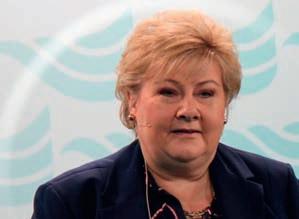

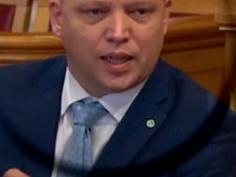

le� alliances in the past. It has risen to around 18% in the poll of polls, three points behind the Conserva� ves and six points behind Labour. This is not enough to form a government by itself, so it is likely to make demands if invited by either side to join a coali� on. It is the party’s views on EEA and single market membership that have set alarm bells ringing in the offi ces of seafood companies and the employer organisa� on Seafood Norway.
The Conserva� ves have accused SP of pursuing a dangerous path, and point to the chaos and near disastrous impact on Sco� sh seafood exports following Brexit. The Conserva� ves argue that transport costs could be up to NOK 500m (£48m) higher if Norway quits the EEA, adding: “Then we have to look at what trade agreements the EU has with other countries, to see what is realis� c. “The (other) most important diff erence for the aquaculture industry is that through the EEA agreement we have joined the EU veterinary system, and that the EEA agreement provides access to important labour,” says the party. While trying to remain poli� cally neutral, Seafood Norway stresses that the EEA agreement is vital for the future prosperity of the seafood industry – and aquaculture in par� cular.
“Through the EEA, we have a seamless trade that means that we avoid test and border problems. But the EEA agreement also provides increased tariff s with increased processing because the fi sh is not fully included in the EEA agreement,” said Seafood Norway CEO Geir Ove Ystmark recently.
S� ne Akselsen, head of business at Seafood Norway said the agreement ensured trade in seafood could take place without border controls.
She warned the Centre Party’s policy of “throwing the EEA agreement overboard “should not only scare the industry”, but also those coastal communi� es where fi sh farms and fi shing ports are located.
The EEA is also one of the few areas of agreement between Erna Solberg and Labour leader and prime minister hopeful Jonas Gahr Støre.
Solberg says: “We do not need that uncertainty. The more we weaken the EEA agreement by vetoing and saying no to various areas, the more we weaken our nego� a� ng posi� on vis-à-vis the EU.
“What I am most afraid of is [that while] being a guarantor of the EEA agreement, we may also undermine the same agreement.
“Not that I think Jonas [Støre] will terminate the agreement, but that his friends in government will weaken it.”
When asked directly, Støre said he would like to remove processing du� es which would help seafood, but admits that would be diffi cult if Norway insists on protec� ng its own vulnerable industries.
Seafood Norway said both Solberg and Støre were quite clear that they wanted more seafood processing to be carried out at home, which was a good star� ng point. But it was unclear as to how far they would go to achieve that aim.
Even if the Centre Party further increases its posi� on in the polls in the run-up to elec� on day, it will fi nd few backers for its an� -Europe views in either of the two main par� es.
It is more likely to chip away on Europe by seeking allies from the smaller par� es on either the le� or right un� l, like Brexit, the voters are on-side.
Then there is the issue of taxa� on. Un� l the coronavirus pandemic hit earnings, Norway’s salmon farmers were making big profi ts which are now showing signs of returning.
Many Norwegians believe the big farmers don’t pay enough taxes. There were howls of protest from the industry a couple of years ago when a (Conserva� ve) government-appointed committee recommended a 40% fl at rate tax – dubbed the salmon tax – should be levied on companies.
Some businesses warned that if this tax became law they might take future investment to Scotland and other fi sh farming countries.
The plan was quickly shelved with even Labour coming out against a fl at rate tax. However, it is in favour of a new tax based on output or on how much land or � ord water companies used.
The industry is likely to be nervous about such an idea because of its open ended possibili� es, arguing it has taken a big fi nancial hit during the pandemic.
There is a month to go before the elec� on and the arguments will undoubtedly become fi ercer and uglier.
Erna Solberg’s party may be lagging in the polls, but she remains a popular prime minister even though she was fi ned for breaching her own Covid rules by a� ending a family birthday party.
A lot could depend on her mending fences with the more right wing Progress or FrP party. The two fell out two years ago when the government allowed an ISIS-suppor� ng mother back into the country.
Her biggest threat, however, may come not from her opponents but from sheer voter fa� gue. FF

